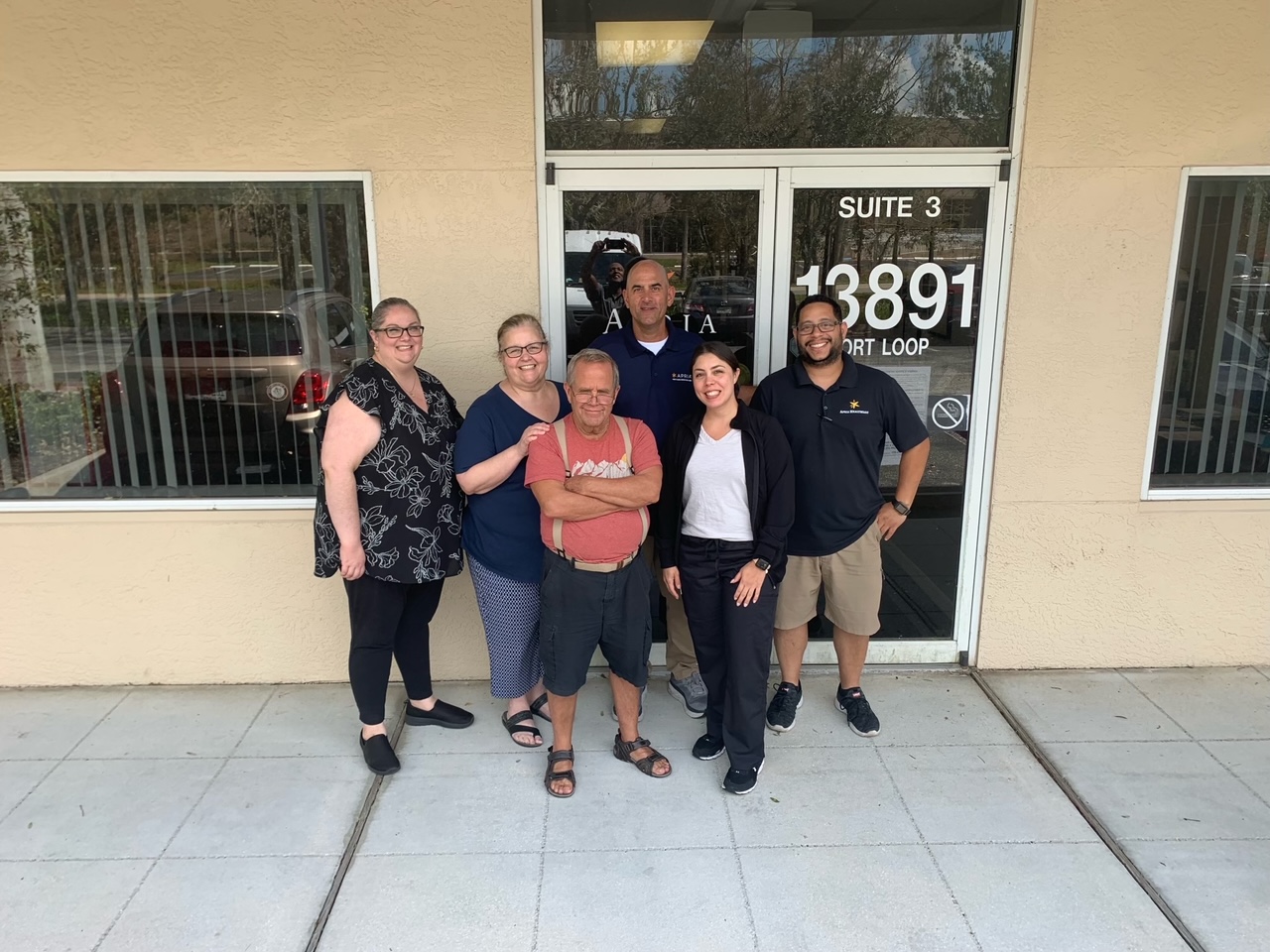Preparation key to caring for patients in aftermath of Ian
Hurricane Ian hit the West Coast of Florida on September 28 as a Category 4 storm. Reports leading up to landfall predicted Ian would be the largest hurricane to hit the Gulf side of the state and would cause unprecedented monetary damage. Any provider following the storm understands the planning that goes into preparing both your staff and patients for an event of this size. AAHomecare providers made a tremendous impact on the lives of patients in both Florida and South Carolina without additional resources or reimbursement, during a time when operations are exacerbated from a storm of this magnitude.
AdaptHealth shared information with their team consistently throughout the days leading up and following the storm. Steve Griggs, CEO of AdaptHealth, shared how multiple phone lines were forwarded, technicians stocked up and stayed just outside mandatory evacuation zones, high risk patients were provided information about appropriate shelters, extra staff were put on call, and communications with patients was made a top priority.
Crispin Teufel, CEO of Lincare, shared similar preparations including adding back-up equipment where necessary to anticipate power outages. “Lincare’s core value to work united, along with our local presence in communities across the country, enables us to be ready for these emergency situations. Our patients at 30 centers in Florida received proactive phone call messages to remind them for personal preparations, and our employees assisted each other by providing supplies and deliveries such as cylinders and concentrators to other locations afterwards. And, we made contact with all Lincare employees in the hurricane’s path to check on their safety. True team effort to be prepared and maintain our continuum of care.”
![Lincare_Hurricane_Ian_Support_2022[1].jpg](/get/files/image/galleries/Lincare_Hurricane_Ian_Support_2022[1].jpg)
Apria Healthcare explained how the success caring for patients after the hurricane came down to extensive preparations. James Wimer, Market Vice President for Apria, visited Apria employees in hard-hit Fort Myers and said, "they are doing well despite their homes being damaged. They are putting their challenges aside and focusing on patients who they now have access to."
Wimer also shared that patients have been visiting their store location and techs have been going out to provide tanks to those in need. But prior to the storm the Apria team, "made sure all West Coast and Central Florida had provisions so even though the forecast changed last minute" they were prepared. Apria personnel were also in continuous communication with patients through the IVR system which allowed them to notify thousands of oxygen users about what was coming and how to find special needs shelters for high risk patients. "Providing resources to customers ahead of the storm helped everyone feel more secure," Wimer concludes.
Bill Guidetti, President, East Region of Apria, praised the work of his teams, stating, "At Apria we're so thankful for our branch based frontline staff, who valiantly braved the massive Hurricane Ian, to ensure highly dependent patients received their oxygen cylinders in advance and during the storm to provide continuity of care."
"Natural disasters present unique challenges for respiratory patients who rely on consistent airflow from oxygen systems that require power-electricity," further explained Guidetti. "When the power goes out for an oxygen concentrator patient they are solely reliant on Apria’s ability to deliver additional oxygen cylinders. In the lead up to the storm our teams are working constantly, day & night under our emergency preparedness plan to properly equip our patients with additional resource. If a patient chooses to travel out of the disaster area or out of the state, Apria is able to accommodate patients along the way given our highly distributed branch network."

"In the aftermath of the storm, we did have four teammates who were displaced, our company will provide relief for their needs but overall we’re more than pleased to report all our employees are safe. It never ceases to amaze me how brave and resilient our front-line teams are as they stand in the 'gap' to provide continuity of care for patients entrusted to our care!" remarked Guidetti.
